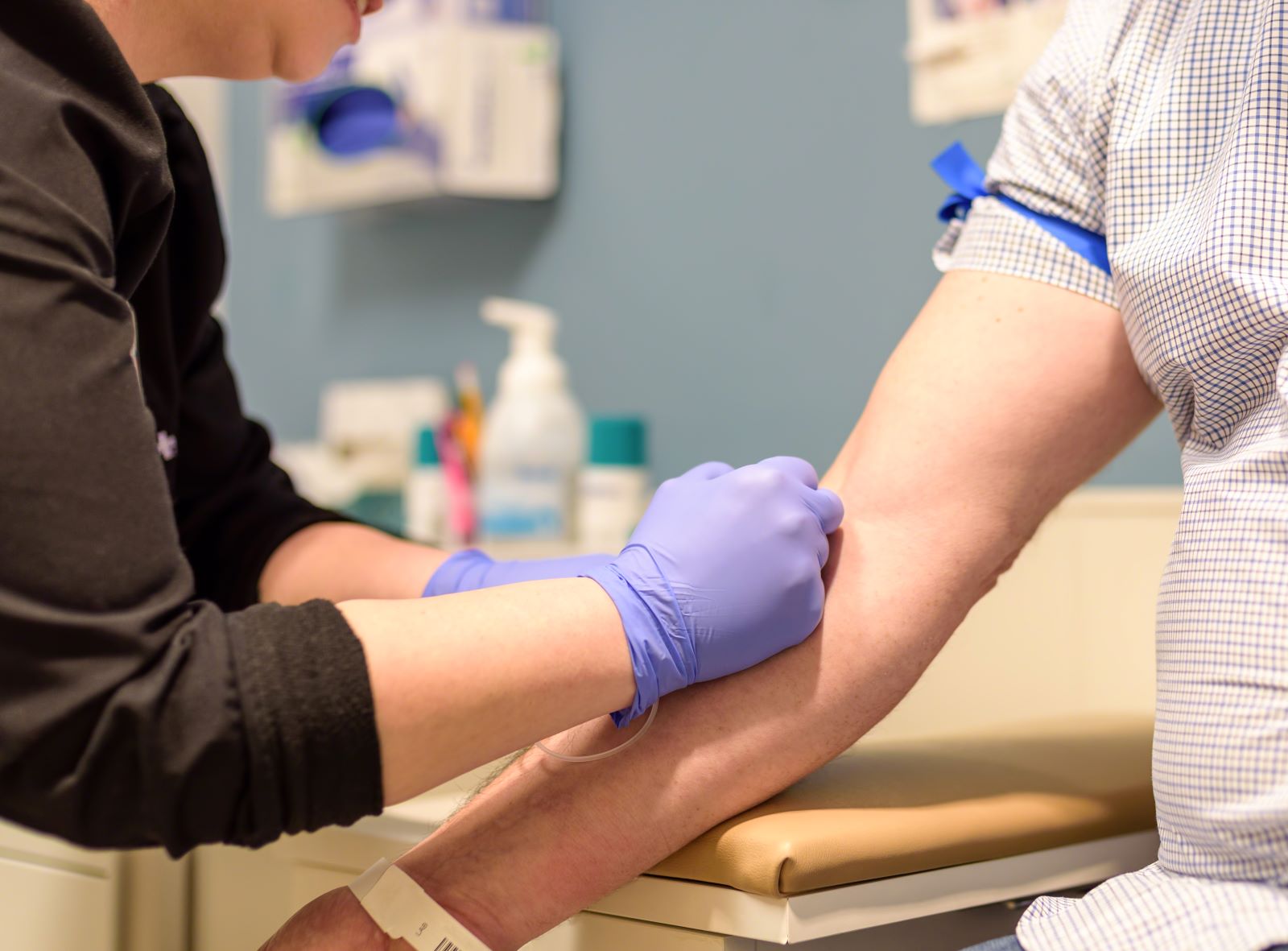<< Back
Hartford HealthCare to Train Police as Phlebotomists

April 09, 2024
The state of Connecticut has launched a program to certify law enforcement officers to draw blood from people suspected of driving while impaired, and Hartford HealthCare’s Emergency Medical Services Network will provide the training.
The first training will teach eight officers — four Connecticut state troopers and four municipal officers — how to draw blood, submit it for testing, and report the results. If they successfully complete the two-week course, these officers will be certified phlebotomists.
The program is a collaboration between HHC and the state Department of Transportation’s Highway Safety Office. It is being funded by a grant from the National Highway Traffic Safety Administration.
Not a new concept
Connecticut is actually late to the idea of police officers drawing blood samples from people suspected of driving under the influence. Arizona launched the program in 1995 and it has spread across the country since then.
Keven McNeill is the law enforcement liaison with the DOT, and he’s been wanting to bring this program to Connecticut since he started in his position in May 2023. He was a fan of the idea long before that, however.
“Our job is to protect the traveling public and keep people safe,” he explains. “We want to give officers everything they need to be able to do their job and reduce fatalities. This is another tool we can give them.”
Multiple substances complicate sobriety testing
As drugs and substances have evolved — and as recreational marijuana has been legalized in the state — traditional methods for testing sobriety, such as field tests, breathalyzers, and urine tests, have proven to fall short when cases are brought to court.
“There is a lot more polydrug use,” McNeill explains. “People are taking over-the-counter (medications), plus prescriptions, plus marijuana, plus other drugs. It makes the job harder. In court, you need that extra level of evidence that a blood test can provide. Blood shows what is in someone’s system at the time.”
Polydrug use is when people mix drugs or use a combination of drugs for a certain effect or high. One drug may lessen or increase side effects or tolerance to make the experience more enjoyable. But this practice carries more risks and can be extremely dangerous, especially when driving a motor vehicle.
Prior to the launch of this program, officers would need consent from a suspect and then must find a hospital, typically an emergency department, to provide a medical professional to draw the blood. If the suspect refused to allow a blood test, a warrant would have to be obtained.
Under the new program, the certified phlebotomist in a police department or state police barracks would be called to the station to draw blood from the suspect. Each certified department will be outfitted with a complete blood draw station and all the required equipment. Blood would only be drawn there, never in the field.
A person continues to have the right to refuse the test.
Training includes real-life component
The class being taught to the police officers is the same one HHC teaches to people who want to become phlebotomists, says Damian Rickard, director of American Professional Educational Services, which is part of HHC’s Emergency Medical Services Network. It will be taught in Norwich. HHC is the only authorized instructor for the police program.
Rickard notes that the class includes real-life training, and at completion, each graduate will have had a minimum of 100 successful needle sticks, called venipunctures. It’s a total of 80 hours of training during the two weeks. The class can hold eight, and Rickard has a waiting list of more than 30 for subsequent sessions.
In the class they cover basic anatomy, including the circulatory system, plus infection control, specimen collection, all the laws that govern blood taking, how the state lab testing works, proper storage and record keeping, and how to write the related reports.
“We’re very excited to partner with Hartford HealthCare,” McNeill says. “We look forward to growing this program.”
> Want more health news? Text StartHere to 85209 to sign up for text alerts